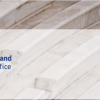
Should the Court of Impeachment and the Parliament’s power of indictment be abolished?
The High Court of Impeachment, Landsdómur, is a special court that addresses alleged misconduct in office by government ministers, depending on Althingi’s decision to prosecute. Misconduct, which concerns laws on ministerial accountability (“ráðherraábyrgð”) is sorted into three categories: a violation of the Constitution, a violation of other laws and a violation of good stewardship. These violations can concern either intentional misconduct (corruption) or gross negligence. The Court has only once been convened , in 2011, despite being established in 1905, in the case of former Prime Minister Geir Haarde who was charged with criminal negligence concerning the events leading up to the financial crisis of 2008, and convicted on one out of six charges. The court has come under scrutiny for several reasons, and in the context of the revision of the Constitution the necessity of these special arrangements has been debated.
Through the decades, many unsuccessful attempts have been made to revise laws on ministerial accountability and the High Court of Impeachment. Even when these proposals have been agreed to in the Parliament, there has been no follow-up regarding implementation.
During the deliberative meeting, participants were asked to consider three possibilities regarding the future of the High Court of Impeachment and Althingi’s power of indictment: firstly, Althingi should retain the power of indictment, and the Court should remain responsible for the legal proceedings. Secondly, Althingi should retain the power of indictment but cases would be referred to the general court system. Thirdly, Althingi should not have the power of indictment and the Court of Impeachment should be abolished. In that case, violations of ministerial accountability should be dealt with in the same way as other criminal cases.
Topic 1: Is the current system not modern enough?
Attitudes toward the Court and the power of indictment changed perceptibly during the discussion. In the beginning of the meeting, 52% of participants considered the system to be necessary to ensure fair and impartial proceedings against the executive branch, but only 32% felt the same way after the discussion. Interestingly, people in the 18-40 year age group were more likely to disagree that the system is necessary (64%) compared with people 41-60 years old (46%) and those over 61 (39%).
Moreover, the proportion of those who wanted the system to remain unchanged dropped from 52% to 21%, and participants who thought that the system could be abused increased from 70% to 79%. These changes visibly demonstrate the effects of the discussion on participants’ attitudes. At least one participant said that they had entirely changed their mind after the group discussion. However, the results were often contradictory, illustrating the complexity of the issue: after the discussion. A majority (50%) thought that Alþingi should retain the power of indictment, but that the general court system should handle the legal proceedings. In the end, a slightly larger majority (55%) felt that Alþingi should not have the power of indictment and that the court should be abolished, compared to only 24% before the discussion.
The 2011 case quickly became a focus of the discussion, and many participants maintained that the proceedings had been “highly political.” Additionally, some felt that indicting only the former Prime Minister Geir Haarde had been unfair – he should not have been singled out as responsible for the government’s failures before the 2008 crisis. A parliamentary committee had originally recommended that four ministers be indicted, but in a vote in the Parliament, MPs’ rejected proposals to indict the other ministers.
During the discussion, mistrust of the current system appeared to become more intense. Many participants considered it to be anachronistic, or an outdated convention. Two themes were prominent: first, the importance of ensuring an impartial process, and second, the perceived immunity of ministers and other politicians. The words “farce” or “farcical” were used by some participants to describe the current process, indicating a lack of confidence in the system. Many participants also expressed that laws concerning ministerial responsibility needed to be articulated more clearly.
Topic 2: Who should have the power of indictment?
The discussion largely concerned the power of indictment, which many participants considered to invite political corruption. They questioned whether parliamentary members are in a position to fairly determine if their coworkers – often members of the same party, or parts of the political opposition – are guilty of misconduct. Some participants considered the power of indictment to be a necessary mechanism for Althingi to keep a check on the power of the executive branch; others wondered if additional parties should also be given the means to do so as well. Many participants felt that for these reasons, the power of indictment lacked credibility, and discussed the importance of finding better and more reliable ways to prosecute ministers and to administer justice. However, the results were often contradictory, and the issue of who should have the power of indictment was considered complicated.
While participants generally agreed that the entire process needed to be somehow separated from politics, especially party politics, and that those involved with the proceedings had to be both unpolitical and impartial, it was unclear who should the power of indictment if not Althingi. Various alternative institutions were suggested, including the Parliament’s Ombudsman, its Constitutional and Supervisory Committee, the Icelandic National Audit Office and the Public Prosecutor – some participants even mentioned the president. Others proposed some kind of a designated indiction and investigation committee. One participant considered the fact that indictment comes before investigation to be a great flaw. Another participant suggested that a special prosecutor should have the power of indictment, and that the parliament should be able to refer cases of alleged misconduct to said prosecutor.
Topic 2: The High Court of Impeachment – must it be abolished?
Participants discussed which court should handle legal proceedings in cases against ministers accused of violating the law on ministerial accountability. Some expressed that they were in favor of the High Court of Impeachment, but that impartiality would need to be guaranteed. If conflicts of interest arose, it might become necessary to enlist the help of foreign experts. One point of view was that ministers should be subjected to the same scrutiny and legal processes as other high-ranking public officials.
One participant called the Court a “bizarre entity”. In 2011, no punishment was imposed on Geir Haarde. Thus, the need for a special, and expensive, court was considered contestable. To one participant, the case proved that the Court of Impeachment did not work as intended, perhaps because it had never been used before. In that context, some participants felt that the Court should have been used more often, mentioning the the so-called “Klaustur” and “Panama Papers” cases.
When discussing the possibility of general courts handling cases against ministers, some wondered if the judges, who are appointed by ministers, were likely to have the courage to rule against them. Some participants thought it unwise to drag the general courts into proceedings that inevitably would become politicized – the High Court of Impeachment was thus preferable.
Overall, participants considered the priority to be credibility, in addition to the prevention of nepotism and corruption. Trust would need to be built, which could include changing the way that judges are appointed in the general court system.
Topic 3: The question of accountability
The perceived immunity of ministers and other politicians was extensively discussed by participants. The question of the High Court of Impeachment and Althingi’s power of indictment became a part of a larger conversation concerning an apparent lack of accountability in Icelandic politics. When participants discovered that a similar arrangement is in place in many countries, and accepted as compatible with the European Convention on Human Rights, they sometimes attributed its flawed manifestation in Iceland to a nonexistent culture of accountability.
One participant argued that the discussion was contradictory and often repetitive because Iceland lacked the tradition of officials resigning from high positions. If ministers resigned when they stood accused of misconduct, according to this participant, the process would be easier. Instead, politicians who maintain their blamelessness usually feel justified to simply stay in office. Comparisons were drawn between Iceland and other nations, where politicians who are found to have violated laws, abuses public trust or broken other rules of conduct are frequently forced to resign. Therefore, participants raised the question of accountability, pointing out that those found guilty of misconduct rarely seem to face political consequences.
Participants largely felt that mechanisms of accountability were missing in Icelandic politics in general, for example citing the fact that the Court had only been assembled once. One participant suggested that the High Court of Impeachment was too severe for consistent accountability, and that other mechanisms for intervention needed to be in place.
A common thread in the discussion was the question of conflicts of interest, arising from personal or political relationships, in the context of Iceland’s small society. Many participants considered the resulting nepotism to be one of the biggest roadblocks to accountability. To some, the question of the Court and the power of indictment illuminated the corruption of a political system tainted by political alliances and nepotism. While participants didn’t reach a consensus about which of the three possibilities was best – or simply the least flawed – they agreed that mechanisms that hold ministers accountable by impartial and undisputed means were necessary, including well-defined rules of conduct, and clear consequences for breaking them.
Further reading:
District Courts of Iceland
About the High Court of Impeachment (Icelandic)
Ekkert gert þrátt fyrir ítrekaðar yfirlýsingar (news coverage of the Court in Icelandic)





















